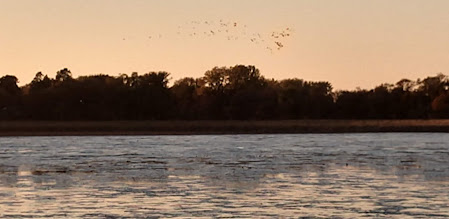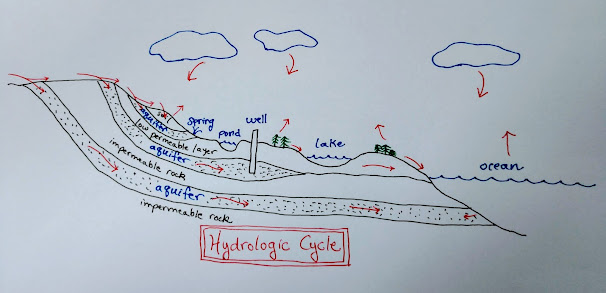Water:
Diving into Fear
Most of
us love water. We float on it, we swim in it, we cleanse ourselves in it, we
make love in it, we fight in it.
We
gravitate towards lakes and oceans to relax on vacations, baring our skin in
colorful suits of strings covering just the essentials to not embarrass our
neighbors. We stand in front of rivers, holding poles with hooks to catch
animals with fins for fun just to be near the wet substance. We build floating
vehicles to travel on top of water; we build tanks that will take us deep into
the dark, past the light, to see the creatures that swim and live beyond our
land.
We use
it to wash the grime and stink off our bodies, the dirt and smell of everyday
living; we scrub the surfaces of our houses and cars with it to rid our
belongings of the evidence of time and use and age. We stand under cold sprays
to wake us up, our kids run through sprinkles with glee for fun, we sit in it
to refresh ourselves after a hard day.
We are
made of it. Our brains are 85 percent water, our whole bodies are 55 to 60
percent of the basic liquid that supports this life. We are walking water bags
on bones. We need to take in 2 ½ to 3 ½ liters of liquid a day just to stay
alive. The planet needs it. We give water to our pets, we water our plants, we
wish for rain in the drought so our lawns don’t dry out and our gardens don’t
fail. Elephants walk for hundreds of miles in search of it. Deserts dry out
because of it; rainforests thrive because of it. Each living thing needs water.
It is an essential part of every living being here on earth.
So why
would you fear water?
Ever
hear that you can have too much of a good thing? Even water can kill. Even something that is so good for you, can
kill you.
Yes,
you can drown in a body of water. We humans can’t breathe underwater with our
mouths and lungs. But it is possible to drink too much water as well. Heathy
kidneys can handle filtering about 20 liters of water a day, but if you have
any health problems, or don’t intake enough vitamins or minerals or
electrolytes, you can drown your body in the amount of water you drink, because
your kidneys won’t be able to keep up, and your body will be holding too much
water. You can kill yourself with a life-giving substance.
You can
have a fear of water. Why would someone fear such a beautiful thing? Imagine the ocean waves lapping over the
sand, or a lake, the sun glinting off it, or the smell of a swimming pool,
ready for your toes dipping in, your arms swimming laps back and forth.
Beautiful, right? What if you were a previous drowning victim? In a wheelchair? What if you had a prosthesis,
a limb loss or difference? What if a physical disability didn’t allow you to
walk confidently along the shoreline or the slippery tile around the pool? What if you never learned how to swim? What
if you watched your friend drown in front of you, and there was nothing you
could do to save them? If your home was lost in a flood? What if you were in a boat that sunk, left you stranded
out in the open water, drifting, helpless? I would fear the water as well.
How
does one get over the fear of water? Do you throw them into the great wide open
ocean, let them figure out how to swim on their own? Seems unkind, scary to me.
When something lifegiving turns cruel and foreboding, when life-giver turns
into murderer, what do you do? Can you stay away from water forever? I doubt
it; it is a part of us; we are literal walking water bags on bones, remember?
Are we scared of ourselves, then? In a way, yes, scared of too much of
ourselves. Do we start gradually, one glass at a time, one pitcher, one
bathtub, one kiddie pool, moving up until we can crouch at the edge of
something larger than us? Can we grasp another’s hand along the way? Can we be
brave enough to admit our fear to someone else?
Wait,
brave enough to fear—does that make sense? How are you brave if you fear? It
takes courage to admit you are fearful. It takes courage to stand up and do
something about your fear. It takes courage to stand up against what makes you
afraid, to change something, anything about yourself that you feel may need
changing. It takes courage to stay open to the world around you, open to
change. But we can. One drop at a time, we water bags on skeletons, we brainy
calcified oceans, we lung-filled air breathing liquid earth walkers can
challenge what we fear, can appreciate what we are made of, if we only learn to
lean on one another, dip our arms, dip our legs, dip our torsos into the very
substance of which we need to cleanse the dirt that clings to us, coming out
not necessarily brand new, but refreshed and cleaner, somehow more whole, more
ourselves, better for taking the dive into the unknown.
Tansy
Julie Soaring Eagle Paschold
5-4-23



